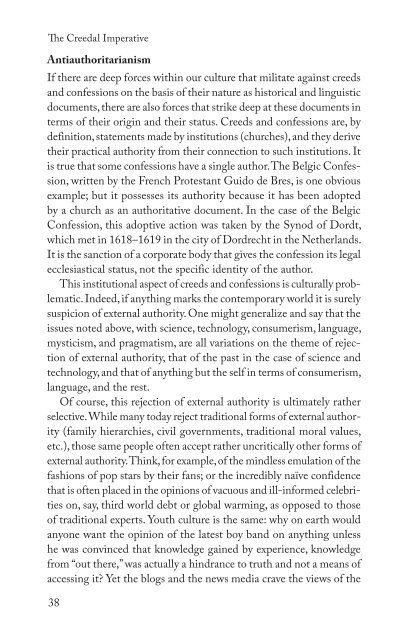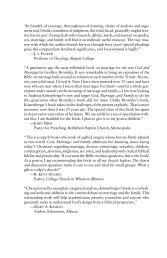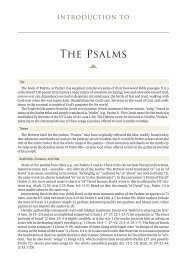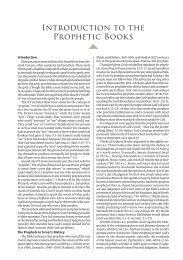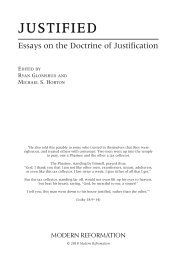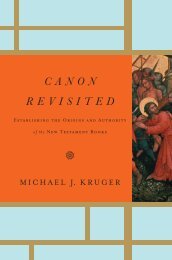The reedal - Monergism Books
The reedal - Monergism Books
The reedal - Monergism Books
Create successful ePaper yourself
Turn your PDF publications into a flip-book with our unique Google optimized e-Paper software.
<strong>The</strong> C<strong>reedal</strong> ImperativeAntiauthoritarianismIf there are deep forces within our culture that militate against creedsand confessions on the basis of their nature as historical and linguisticdocuments, there are also forces that strike deep at these documents interms of their origin and their status. Creeds and confessions are, bydefinition, statements made by institutions (churches), and they derivetheir practical authority from their connection to such institutions. Itis true that some confessions have a single author. <strong>The</strong> Belgic Confession,written by the French Protestant Guido de Bres, is one obviousexample; but it possesses its authority because it has been adoptedby a church as an authoritative document. In the case of the BelgicConfession, this adoptive action was taken by the Synod of Dordt,which met in 1618–1619 in the city of Dordrecht in the Netherlands.It is the sanction of a corporate body that gives the confession its legalecclesiastical status, not the specific identity of the author.This institutional aspect of creeds and confessions is culturally problematic.Indeed, if anything marks the contemporary world it is surelysuspicion of external authority. One might generalize and say that theissues noted above, with science, technology, consumerism, language,mysticism, and pragmatism, are all variations on the theme of rejectionof external authority, that of the past in the case of science andtechnology, and that of anything but the self in terms of consumerism,language, and the rest.Of course, this rejection of external authority is ultimately ratherselective. While many today reject traditional forms of external authority(family hierarchies, civil governments, traditional moral values,etc.), those same people often accept rather uncritically other forms ofexternal authority. Think, for example, of the mindless emulation of thefashions of pop stars by their fans; or the incredibly naïve confidencethat is often placed in the opinions of vacuous and ill-informed celebritieson, say, third world debt or global warming, as opposed to thoseof traditional experts. Youth culture is the same: why on earth wouldanyone want the opinion of the latest boy band on anything unlesshe was convinced that knowledge gained by experience, knowledgefrom “out there,” was actually a hindrance to truth and not a means ofaccessing it? Yet the blogs and the news media crave the views of the38


